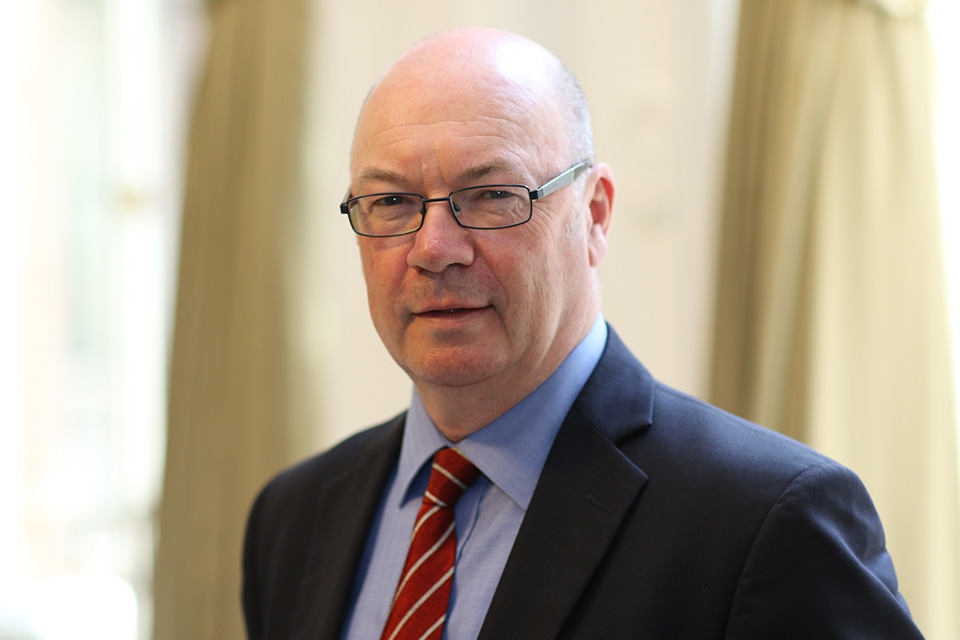UK agrees ground breaking research partnership with Norway on nuclear disarmament verification
Alistair Burt MP, UK Parliamentary Under-Secretary of State for Foreign Affairs, gives a speech on Disarmament and taking forward Multilateral Disarmament Negotiations

The UK welcomes your personal commitment and the leadership the UN Secretary General has shown on disarmament and non-proliferation.
We also welcome the recent progress that the international community has made in this area, with the signature of a new Strategic Arms Reduction Treaty by the US and Russia, and the clear commitment to progress signalled by the NPT Review Conference in May.
For our part, in May we announced details of our warhead stockpile and we are undertaking a nuclear declaratory policy review - measures designed to build confidence between the nuclear and non-nuclear weapon states. The UK is committed to maintaining a minimum nuclear deterrent; we have signed and ratified the Comprehensive Test-Ban Treaty; and ceased production of fissile material for military purposes. In September 2009 we hosted a P5 conference on confidence building measures towards nuclear disarmament, and we look forward to further engaging with the P5 on the recommendations in the NPT Action plan.
In addition, I am pleased to announce that the UK and Norway have agreed to continue our work to meet the verification challenges of nuclear disarmament, taking forward our long-running collaboration.
In December 2010, Norwegian experts will carry out a trial inspection in the UK. The aim of the exercise is to test possible confidence building measures during an inspection, which will provide international inspectors access to sensitive sites without jeopardising national security. This will build on ground-breaking research which the UK and Norway have carried out on verifying the dismantlement of nuclear warheads.
We firmly believe that increasing transparency, and developing the technical, military and political solutions to the practical challenges of disarmament, are vital to making tangible progress towards our ultimate goal of a world without nuclear weapons.
The UK has always supported the goal of a Middle East Free of Weapons of Mass Destruction and the NPT outcome set a clear mandate to take work on this, but it is important that countries in the region are prepared to engage constructively.
Mr Secretary General,
The Conference on Disarmament, with its mandate to negotiate multilateral disarmament treaties, has a duty to contribute to this goal.
Last year’s Programme of Work mandated, by consensus, discussions on all agenda items and the start of negotiations on a Fissile Material Cut-off Treaty. Nothing has changed since last May, apart from ever increasing support from the international community to get on with negotiating a Fissile Material Cut-off Treaty. The UN First Committee resolution on a Fissile Material Cut-off Treaty in 2009 also gained consensus. We should still discuss all of the items on the CD’s agenda, and we are ready to, but one country is blocking discussion of anything at all.
The CD itself is an institution which, through its rules of procedure, shows respect for everyone’s security.
We understand that some countries will have concerns about what a Fissile Material Cut-off Treaty might mean for them - but we will have plenty of opportunity to discuss all of the issues and concerns at the negotiating table. The CD offers protection to countries’ interests both at the negotiation phase and in the eventual signature and ratification phase.
Blocking the start of negotiations is damaging for multilateral arms control and may lead committed nations to bypass traditional institutions in order to further their disarmament ambitions. The CD needs to show that it is still relevant to addressing the challenges of global arms control, disarmament and non-proliferation in the 21st Century.
The recent NPT Review Conference showed not only what can be achieved and the compromises that can be made during active negotiation between countries, but also the fierce desire to make progress after a decade of deadlock. The opportunity to galvanise progress is open to the Conference on Disarmament and it must now show that it is fit to carry out the work it has been mandated to do.